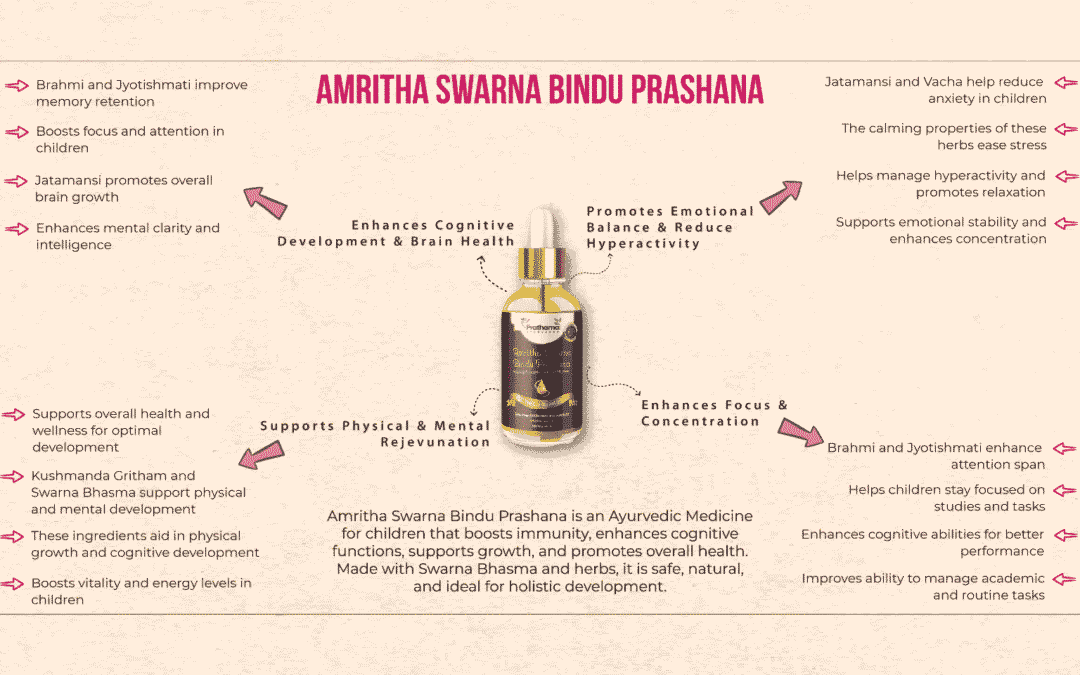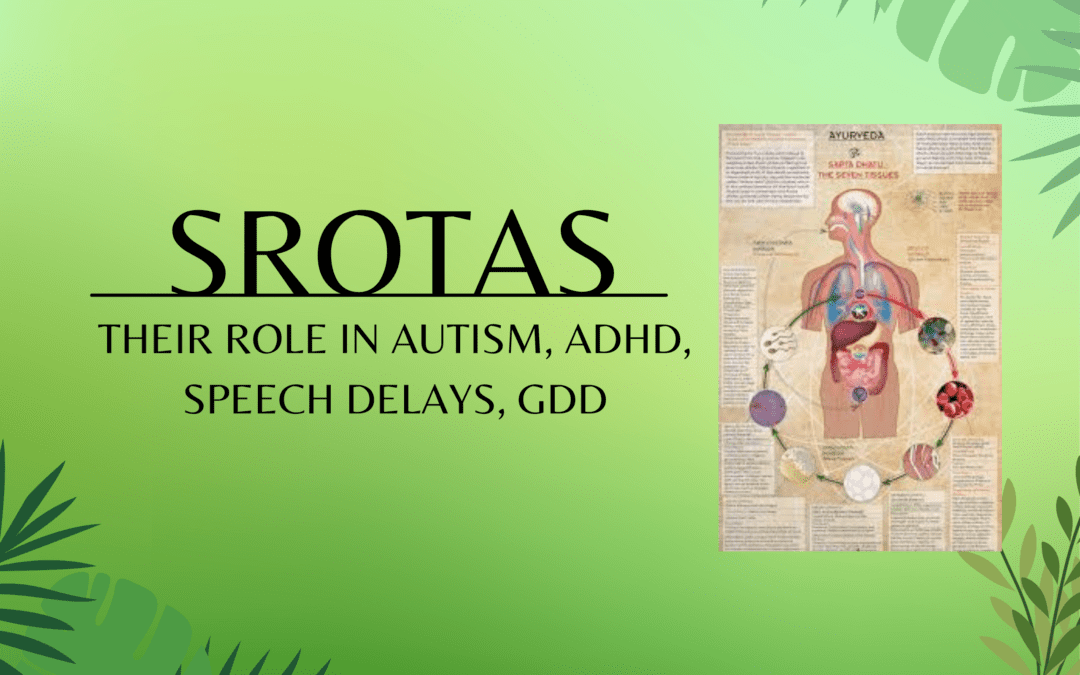Did you know that our brain and gut are in continuous communication, creating a powerful axis that impacts your child’s overall well-being? This intricate connection, known as the gut-brain axis (GBA), plays a crucial role in maintaining health and can significantly influence neurodevelopmental conditions like ADHD and autism. Numerous studies have highlighted the connection between an imbalanced GBA and the onset of autism. In this blog, we will explore the signs of an imbalanced GBA in Autism and ADHD and delve into the importance of maintaining this connection in Ayurvedic healing.
Signs of an Imbalanced Gut-Brain Axis in Autism and ADHD
The gut-brain axis is a complex network of communication between the gut and the brain, involving various components such as nerves, hormones, and the immune system. When this axis isn’t operating optimally, it can lead to various health issues, including neurodevelopmental conditions like Autism and ADHD. Here are some signs that may indicate an imbalanced GBA in children with these conditions:
Digestive Problems: Children with Autism and ADHD often experience gastrointestinal issues such as constipation, diarrhoea, or abdominal pain. These problems can be indicative of an imbalanced GBA.
Food Sensitivities: Sensitivities or allergies to certain foods can trigger behavioral issues and mood swings in children with Autism and ADHD. These reactions may be linked to the gut-brain connection.
Irritability and Anxiety: An imbalanced GBA can contribute to increased irritability and anxiety in children, exacerbating the symptoms of Autism and ADHD.
Sleep Disturbances: Sleep problems are common in children with neurodevelopmental conditions, and an unhealthy GBA may play a role in disrupting their sleep patterns.
Inflammation: Chronic inflammation in the gut can negatively impact brain function and exacerbate the symptoms of Autism and ADHD.
3 Channels of Gut-Brain Communication
The gut and brain communicate through three primary channels:
1. Nervous System: The Vagus nerve connects the gut and brain, enabling continuous communication. Maintaining a balanced nervous system helps regulate emotions and cognitive functions in children with Autism and ADHD.
2. Immune System: Remarkably, nearly 70% of a child’s immune system resides in the gut. A healthy gut supports a robust immune response, which is crucial for children with neurodevelopmental conditions.
3. Endocrine System: Hormones produced in the gut influence brain function, and vice versa. A harmonious endocrine system helps manage stress and anxiety levels, which can significantly impact children with Autism and ADHD.
Ayurvedic Practices to Support a Healthy Gut-Brain Axis in Autism and ADHD
Ayurveda, the ancient system of natural healing, offers a holistic approach to nurturing the gut-brain connection. Here are some Ayurvedic practices that can support a healthy GBA in children with Autism and ADHD:
Balanced Diet: Ayurveda emphasizes the importance of a balanced diet composed of nutrient-dense foods. Incorporate foods such as rice, ragi, oats, dals, leafy vegetables, melons, and jaggery into your child’s diet. These foods provide essential nutrients for both the gut and the brain.
Mindful Eating: Ayurveda places great importance on mindful eating. Encourage your child to eat slowly, chew their food thoroughly, and savour each bite. This mindful approach to eating supports optimal digestion and absorption of nutrients.
Daily Routine: Stability in daily routines is vital for nurturing gut-brain health. Ensure your child has regular meal times, engages in physical activity, has time for play and creativity, and receives adequate sleep. This stability promotes optimal digestion and overall well-being.
Ayurvedic Treatment: Consider Ayurvedic treatments like Vasti therapy, which involves therapeutic enemas. Vasti treatment helps in gut healing, stimulates brain function, and contributes to maintaining a healthy gut-brain axis.
Dr. Santhisree Bheesetti at Sree Prathama Ayurvedam Panchakarma Hospital explains that Ayurvedic treatments offer a comprehensive approach to nurturing the gut-brain connection. These treatments aim to balance the doshas (biological energies) and address the root causes of imbalances in the body and mind.
It’s important to note that every child is unique, and their needs may vary. Therefore, consulting with qualified Ayurvedic practitioners is essential to develop a holistic approach that suits your child’s specific requirements.
Conclusion
The gut-brain connection is a fundamental aspect of our overall well-being, and it plays a significant role in the development and management of neurodevelopmental conditions like Autism and ADHD. Recognising the signs of an imbalanced gut-brain axis and implementing Ayurvedic practices can be instrumental in supporting your child’s health.
Ayurveda offers a holistic and natural approach to healing, focusing on dietary choices, mindful eating, daily routines, and specialized treatments like Vasti therapy. By nurturing the gut-brain connection through these practices, you can enhance your child’s overall quality of life and well-being.
If you have more questions or need personalized guidance on maintaining a healthy gut-brain axis for your child, consider consulting with Dr. Santhisree at Sree Prathama Ayurvedam Hospital. Visit https://www.autismayurvedam.com/ for more details. Together, you can embark on a journey toward improved health and vitality for your child, fostering a brighter and healthier future.






This insightful article sheds light on the vital gut-brain connection in Autism & ADHD. Ayurveda’s holistic practices offer hope for nurturing this axis, emphasizing diet, mindful eating, routines, & specialized treatments like Vasti therapy. A valuable resource for parents seeking holistic approaches to support their child’s well-being.
Thank you for your thoughtful comment! I’m glad you found the post insightful.
Mam, wonderfully explained the concept of GBA. It’s so important for parents to understand this and thank you mam for writing in such simple and easy to understand format.